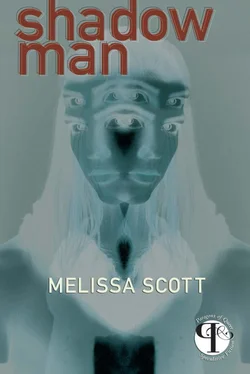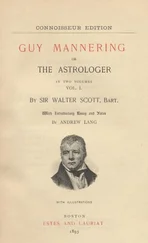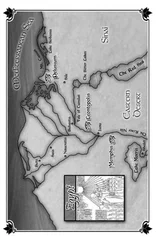“I’m not surprised,” Reiss said sourly. “It wasn’t anything serious, just some rana bands, but the mosstaas cracked down. And a bunch of people got arrested.”
“And one of them called you to post bail,” Derebought said.
Reiss gave her a wary smile, half embarrassed, half ingratiating. “Actually, a friend of a friend called, to see if I’d contribute to the bail, and maybe help get people home from the iron house. It was more of a bribe, anyway, and I had the car last night. But the judge let most of them off without charges.”
“Did you have to give your name?” Tatian asked.
Reiss shook his head. “Renai knows a bondsman, 3e handled it.”
“Good.”
“What was it all about, anyway?” Derebought asked. “I heard at the ceremony that there’d been something at the Souk, but nothing about the harbor.”
Reiss shrugged. “Some ultra-Modernists were dancing for the Meeting—to bring local law into line with the Concord—and some of the Traditionalists got pissy. The mosstaas stepped in, arrested the ranas before a fight started.”
Which meant, Tatian translated, that the issue was gender law again. The Centennial Meeting would open after the new year, its ceremonies marking the five-hundredth anniversary of Hara’s settlement. It was as close to a universal forum as Hara had, the only possible counterbalance to Temelathe’s control of the traditional mechanisms of mesnie , clan, and Watch. It didn’t seem like much of an adversary, not when one looked at the power Temelathe held, but the Most Important Man was taking it very seriously indeed. And maybe he was right to do so: with the Meeting due to open in about eight local months, about six thousand hours by the more conventional reckoning, every political group on Hara was doing its best to get its issues put before the Meeting. And right now, the question of gender law—of whether or not Haran law would acknowledge the existence of mems, fems, and herms—was becoming a major issue. Temelathe Stane was doing his best to keep it from reaching the agenda, or so rumor said, not least because of the various ways he profited from trade. Tatian wasn’t fully sure he believed the talk—after all, there were five sexes, no matter what local law said about it; he couldn’t help thinking that Tendlathe’s well-publicized opposition to off-world influence and trade was just another way to raise prices—but he wasn’t surprised that Temelathe would prefer to see the debate center on gender rather than on his own domination of Haran politics. The Meeting would be an acrimonious one, whatever happened. He said, “Do you still have your meeting on Kittree Row?”
“Yeah, I called. It wasn’t until noon anyway.”
“I suppose it was too much trouble to call here?”
“I only had local access,” Reiss said. “I am sorry.”
Tatian glanced down at the desktop, tacitly accepting both the apology and the excuse. Still, it was half an hour to noon, which left only half an hour to negotiate the worst traffic in Bonemarche.
“That’s why I came straight in,” Reiss said. “We’ll make it.”
Tatian looked at him warily. Now that it actually came to dealing with an unlicensed indigene, he was nervous, which was not entirely unreasonable, either. But then, her rates had to be better than the prices the port technicians could charge. And if he didn’t get the system fixed before the Midsummer bargaining began, he would be worse than useless. “Right. Let’s go.” He touched the shadowscreen as he spoke, securing the desktop and telling the system when he would be back.
“I’ll get that analysis started,” Derebought said, and Tatian nodded.
“Great.”
Reiss had left his battered jigg outside the office’s back entrance, as usual. Tatian followed him out into the rutted alley, wrinkling his nose at the smell of rotting seaweed, and lowered himself into the open passenger seat. Reiss kicked the motor to life and brought the jigg out into the main street at a relatively decorous pace. Traffic was heavy, as always, heavier as they reached the warren of alleys and narrow lanes that led into the Souk, until the jigg was barely moving as fast as a person could walk. He could feel Reiss’s weight tipping the jigg from side to side as he scanned the passing shays, and he braced himself against the edge of the car as the jigg accelerated suddenly, darting through the gap between a three-up and a shay piled high with bales of fonori. Reiss steadied the machine almost absently—he was, Tatian reminded himself, a very good driver—and swung out and around a slow-moving caleche before the driver could do more than open his mouth to shout. And then they had made the turn onto Kittree Row, the traffic vanishing almost magically.
The buildings were low and long, like most of the buildings in Bonemarche, but instead of the usual open bay at street level, most of them showed blank faces, closed off from the street by gray-painted doors. They looked almost metallic, but Tatian knew they would be wood or cast clay. Each one was marked with a house mark like a sign—a wave, a crudely drawn crescent moon, a top-hatted skeleton—and most had a bar of black paint running horizontally across the door. Stiller was a Black Watch clan, and most of Bonemarche’s population were at least nominally Stillers.
The jigg slowed, pulled sideways into the shadow of a building distinguished by a painted star and a wide band of green paint. Massingberd was a Green Watch clan, Tatian remembered, and loosely allied with Stiller against Stane. The door was propped upon a balk of wood, raised maybe a meter to let the breeze in, and Reiss leaned out of the jigg to touch a button on the wall beside the doorway. For a long moment, nothing happened, and then the door began to rise, jerking along its tracks. Reiss ducked forward slightly and brought the jigg into the bay. The engine was very loud in the confined space.
“Æ,” he called, and flicked the engine off completely. “Starli, are you there?”
There was a little silence. As Tatian’s eyes adjusted to the light—the bay was well lit, but seemed dim after the brilliance of the street—he could make out a knot of mostly men, gathered around a stand-alone diagnostic unit. They said nothing, watching the jigg, and then a woman pushed her way through the group, wiping her hands on a bright blue rag. One of the men switched off the diagnostic unit, and another reached halfheartedly for a tool kit that stood open beside a disassembled jet-car frame.
“So what’s up, Reiss?” The woman—Starli, she must be—came fully into the light, stopped perhaps three meters away, her arms folded across her breasts. She was tall, even by Haran standards, her long hair tied up in a square of blue-and-green-and-pink print fabric, and Tatian caught himself looking again to see if she was really a fem.
Reiss said, “You remember the other day I asked if you still did work on off-world implants? My boss is having problems with a connection, and I wondered if you could help.” He nodded side-ways. “Ser Mhyre Tatian.” The off-world names sounded harsh amid the flow of franca .
Starli nodded, some of the tension easing from her stance. “Mir Tatian. I’m Starli Massingberd.”
“Honored, mirrim,” Tatian said, and knew better than to offer his hand. “Reiss tells me you repair implants.”
“For kittereen racers, yes.” Starli tipped her head to the side, the wrinkles at the corners of her eyes tightening either in contemplation or the beginnings of laughter. “And you should know I’m not licensed.”
“Reiss told me. He also said you were good.”
Starli smiled then, a quick baring of teeth. Tatian was suddenly aware again of the hovering technicians, pretending to work while they listened. “He’s right, mir, and good costs money. But I give discounts for metal, and I’m willing to make terms.”
Читать дальше












